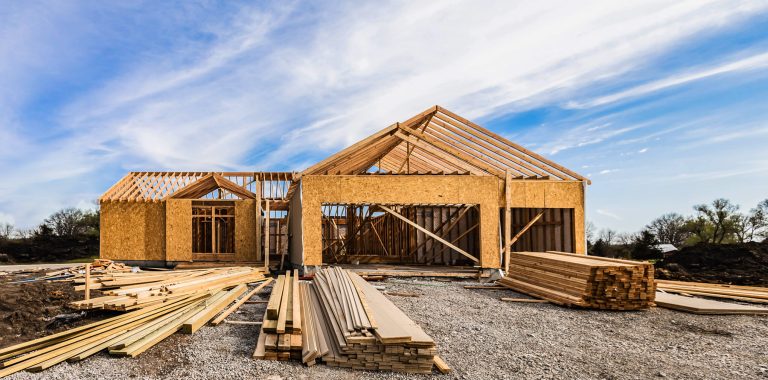
We use a search and matching model to study the heterogeneous welfare effects of housing market illiquidity due to mortgage lock-in over the lifecycle. We find that younger home buyers are disproportionately affected by mortgage lock-in, which disrupts their typical pattern of moving to higher-quality neighborhoods.

How to Make Homeownership More Attainable
With homebuying season here, many Americans are eyeing the housing market, looking for signs of improvement. Will unfavorable conditions abate and the number of affordable homes begin to rise?
Some are worrying about the future of commercial real estate because of recent falls in valuations. Our expert discusses the challenges facing CRE and how to disentangle the trends that are shaking up the sector.

Using confidential offer-level data on the US housing market, this paper examines the rounding-off heuristics in the bilateral bargaining process. We demonstrate that home sellers and home buyers follow different rounding-off heuristics. While sellers' list prices cluster more frequently around charm numbers (e.g. 349,999), buyers' offer prices and negotiated final sales prices cluster at salient round numbers.
Andra Ghent, Professor of Finance at the University of Utah’s David Eccles School of Business, discusses the current state of housing affordability in an era of high interest rates.

This event, sponsored by the Commercial Real Estate Data Alliance (CREDA) and the Institute for Private Capital (IPC), brings together leading academics and practitioners to discuss current issues related to commercial real estate, infrastructure, inflation and policy issues such as the effects of possible rent control proposals on investment returns.
The cost to rent a one-bedroom apartment in Raleigh and Durham jumped 6% in a month as the area continues to attract new residents, according to a WRAL TechWire report. Rising prices are an indication of an undersupply in homes for rent or sale, said institute Chief Economist Gerald Cohen, adding that this “suggests that the risks of a significant drop in housing is quite low.”

Join the Kenan Institute of Private Enterprise for a virtual talk featuring London Business School Finance Professor Alex Edmans, who will critically examine the case for purposeful business using rigorous evidence and real-life examples to show what works – and, importantly, what doesn’t.

In this interactive virtual workshop, learn how news gets made and how you can evaluate the credibility of news you find on the web. These practical skills will help you become news literate in your professional and personal lives.
When high-tech companies plan to expand, U.S. cities often compete to attract their investment. While living near a new corporate neighbor can bring job creation and an economic boost, these benefits aren’t experienced equally by local inhabitants. This week's insight explores this and other key findings in new research by UNC Kenan-Flagler Professor Franklin Qian and economist Rose Tan.
Using 391 high-skilled firm entries in the U.S. from 1990–2010, we estimate the effects of the firm entry on incumbent residents’ consumption, finances, and mobility. We compare outcomes for residents living close to the entry location with those living far away while controlling for their proximity to potential high-skilled firm entry sites.





The NAR Settlement and First-Time Homebuyers
The settlement with the National Association of Realtors will alter how real estate agents do business. Eric Maribojoc, associate director for the Affordable Housing Initiative at UNC Kenan-Flagler Business School, discusses changes we might see.